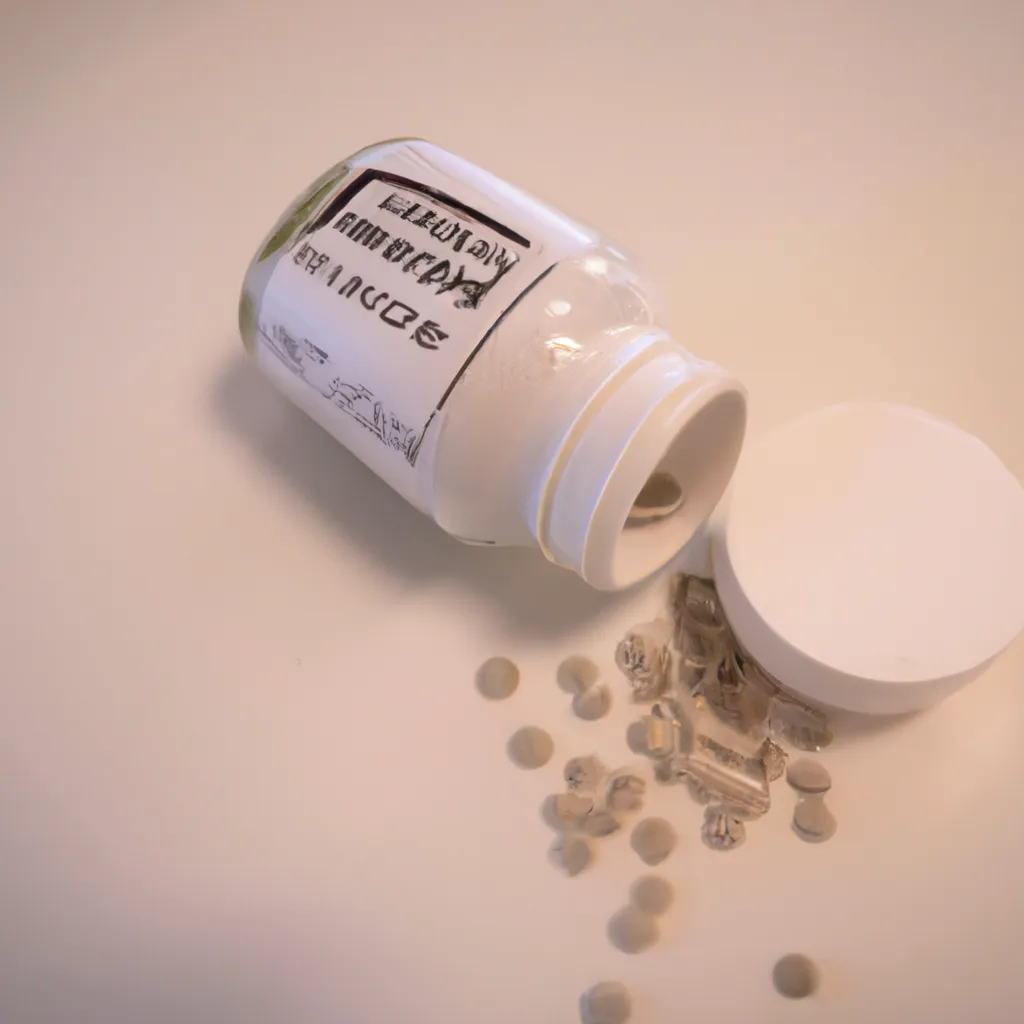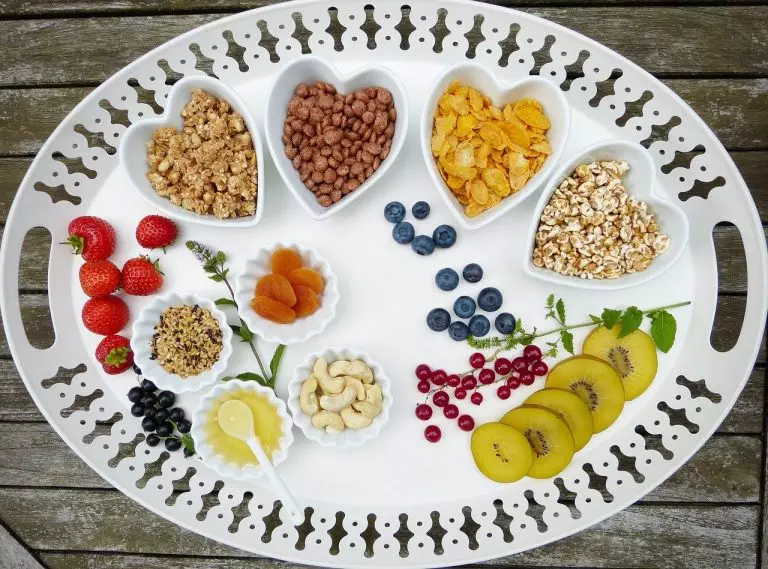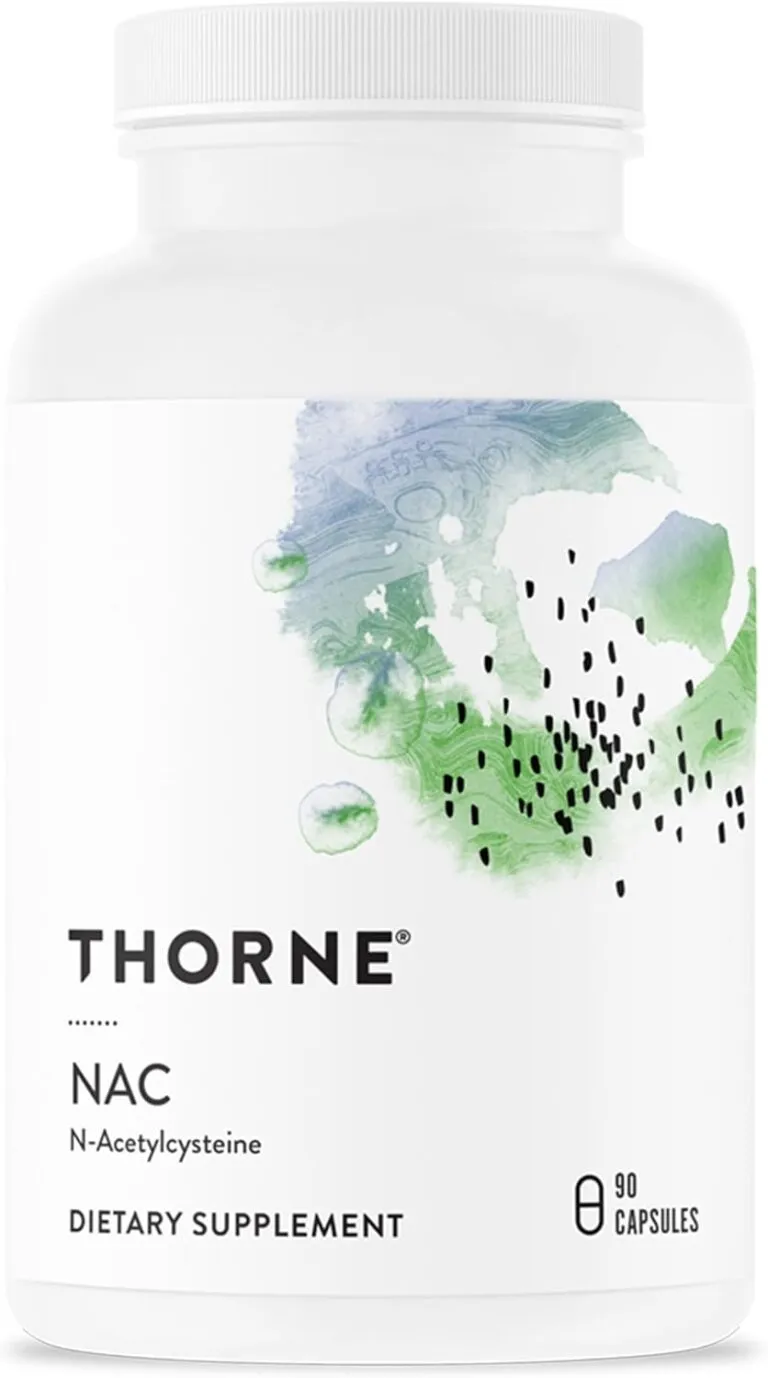Unlocking the Power of Selenium: 6 Surprising Benefits for Your Health
Key Points
- Selenium is a vital trace mineral required for immunity, antioxidant protection, and robust metabolic health, so it’s fundamental to wellbeing.
- Proper selenium consumption helps guard against chronic illnesses by minimizing oxidative stress, promoting cardiovascular and thyroid health, and maintaining cognitive function.
- Selenium deficiency remains a significant global issue due to variations in soil content and dietary habits, making it essential to incorporate selenium-rich foods like Brazil nuts, seafood, and whole grains into one’s diet.
- Although supplementation can help address deficiencies, it’s crucial to avoid overconsumption to minimize the potential for toxicity. Always seek guidance from healthcare professionals for personalized advice.
- Selenium acts in synergy with nutrients such as vitamin E and coenzyme Q10; therefore, a balanced and varied diet optimizes its health effects.
- Consuming food over supplements and making thoughtful dietary choices can help you achieve the selenium levels you need for long-term health.
- Thyroid Health: Selenium supports normal thyroid function in healthy individuals and is important for the proper functioning of the thyroid gland*
- Antioxidant: Because selenium is an antioxidant it helps reduce oxidative damage in the body caused by toxins, smoking, alcohol use, and stress; Selenium also promotes healthy skin, hair, and cognitive function*
- Essential Nutrient: Selenium is an essential nutrient to help maintain optimal health and wellness*
- 3rd Party Contents Certified: This product has been third-party tested and certified to verify what’s in the package matches what’s on the label
- Trusted: Thorne is chosen by champions and trusted by 100+ professional sports teams, a proud partner of U.S. National Teams, and the #1 recommended clinical brand by health-care practitioners (2023 Health-Care Practitioner Seller Survey)
Last update on 2025-12-19 / Affiliate links / Images from Amazon Product Advertising API
Six of selenium’s top benefits are strong cell guard, enhanced immune function, cognitive enhancement, thyroid health, mood stability, and heart health.
Employed in small but crucial quantities, selenium supports various bodily functions.
It combats cellular stress, bolsters immune support, and sustains energy.
All of these benefits contribute to improved health daily.
Next, discover what makes these six benefits of selenium so prominent and how to include selenium in meals.
Understanding Selenium
Selenium is a vital trace mineral required for numerous bodily processes, including its role in antioxidant enzymes that protect cells from oxidative damage.
Ensuring adequate selenium intake through dietary supplements is crucial, as both selenium deficiencies and excessive selenium can pose health risks, making it essential for maintaining good health.
A Vital Trace Mineral
Selenium is among the essential trace minerals that humans need to obtain from their diet.
While required in only trace quantities, 55 micrograms per day for adults, it plays a significant role in numerous essential bodily reactions.
Selenium is necessary for the synthesis of selenoproteins, which serve as antioxidants that help protect cells from damage caused by free radicals.
These are required for thyroid hormone synthesis and metabolism.
Without sufficient selenium, the thyroid is unable to function correctly, which can result in imbalances that either slow down energy metabolism or induce fatigue.
Dietary sources of selenium include Brazil nuts, which are one of the highest sources (approximately 544 micrograms per ounce), as well as tuna, sardines, shrimp, and meats.
Even eggs and grains can provide selenium, but plant levels depend on the amount of selenium in the soil.
Consuming a diverse mix of these foods helps maintain steady selenium levels.
The Deficiency Problem
Selenium deficiency occurs more frequently in areas with selenium-deficient soil.
This implies that individuals who primarily consume local foods from these regions may be at risk of selenium deficiency.
Symptoms of a deficiency are usually mild at first – fatigue, a compromised immune system, and joint stiffness.
Some people experience hair loss, witness nail discoloration, or suffer from increased nausea.
If the issue persists, it can increase the risk of thyroid conditions, such as hypothyroidism, and even compromise heart health.
Research indicates that insufficient selenium may impair the thyroid’s ability to produce hormones, leading to swelling or a slow metabolism.
In these instances, supplementing with selenium-rich foods or supplements can assist.
Still, it’s wise to consult with a physician before starting supplements, as individual requirements may vary.
The Toxicity Risk
You can get too much selenium, although it’s not common from food alone.
Most cases arise from excessive use of supplements. Early indications of toxicity comprise stomach upset, diarrhea, alopecia, and garlic breath.
If high intake persists, it can damage nerves or cause brittle nails.
That’s why it’s safest to stick around the recommended daily allowance and not to go crazy with supplements.
Individuals who consume a high amount of Brazil nuts or multiple selenium-rich products should exercise caution.
- 240 Vegetarian Capsules Per Bottle
- 200mcg of Selenium Per Capsule
- 240 Servings Per Bottle – 1 Serving: Just 1 Capsule
- Non-GMO, Gluten Free, Soy Free, Vegetarian Capsules, 3rd Party Tested
- Made in an NSF Certified, GMP Compliant, FDA Registered Facility.
Last update on 2025-12-19 / Affiliate links / Images from Amazon Product Advertising API
The Six Core Benefits of Selenium
Selenium is a trace mineral essential for various bodily functions, including its antioxidant properties that help combat oxidative damage.
Sufficient dietary selenium intake may enhance overall well-being, prolong longevity, and reduce the risk of various illnesses.
Incorporating selenium supplementation into your nutrition supports a healthful diet and ensures you are covered in the long run.
- Antioxidant protection for cells and tissues
- Healthy thyroid function and hormone balance
- Brain and cognitive support
- Cardiovascular health and blood vessel care
- Skin repair and anti-aging benefits
- Respiratory relief and asthma support
1. Powerful Antioxidant
Selenium is another key antioxidant assistant in the body. It aids enzymes such as glutathione peroxidase in its task, which is to help prevent cell damage from free radicals.
These unstable molecules can damage DNA and accelerate the aging process.
By combating oxidative stress, selenium helps maintain tissue health and may reduce the risk of chronic diseases, such as cancer and heart disease.
Individuals who incorporate selenium-rich foods like Brazil nuts or tuna into their diet can enhance these defenses.
For those who require additional support, supplements can help maintain optimal antioxidant levels.
Selenium’s antioxidant benefits don’t stop at cell survival.
Research suggests that it may protect against prostate and colon cancers, but further studies are needed to substantiate this claim.
It helps the immune system function properly, enabling the body to combat infections effectively.
2. Thyroid Guardian
Selenium and thyroid health are closely linked. It aids in the production of thyroid hormones, which maintain metabolism, growth, and energy.
When selenium levels are too low, hormone production can be impaired, potentially leading to fatigue or weight gain.
Autoimmune thyroid issues, such as Hashimoto’s, are often accompanied by low selenium as well.
Getting sufficient selenium may aid individuals with thyroid problems. Selenium is highly recommended for patients with certain heart conditions.
Foods such as eggs, sunflower seeds, and whole grains are excellent choices for maintaining healthy thyroid levels.
3. Brain Protector
Selenium can potentially protect the brain from illnesses like Alzheimer’s and Parkinson’s. It reduces oxidative stress in brain cells, which is linked to brain aging and memory loss.
Those with adequate selenium experience sharper minds and improved memories into their later years.
Studies have further linked selenium to improved cognitive function, particularly in the elderly.
Increasing selenium in your diet may be a simple way to support brain health in the future.
4. Heart Health Ally
Selenium assists the heart in several ways. It can enhance lipid profiles and help regulate cholesterol.
Others associate increased selenium consumption with a decreased likelihood of heart disease.
There’s some indication it can reduce blood pressure.
Balanced selenium, neither too high nor too low, is best for the heart. It’s most effective as part of a heart-healthy lifestyle, including daily activity and a balanced diet.
5. Skin Enhancer
This mineral can enhance skin quality. Its antioxidant punch safeguards skin from sun damage and pollution.
Some discover that selenium keeps skin elastic and smooth, with fewer wrinkles.
That’s why a lot of people swear by selenium-rich foods or supplements for skin-health benefits. It’s a no-brainer for those seeking to decelerate skin aging.
6. Asthma Relief
Selenium might assist individuals with asthma by reducing inflammation in the airways.
Some studies say asthmatics have low selenium levels.
Selenium supplements may help make breathing easier when taken as a daily habit. It’s not a cure, but it could be a valuable complement to overall lung health.
How Much Selenium Do You Need?
Selenium requirements vary with age, health, and diet, making adequate selenium intake essential for a healthy diet. Enough but not too much is key to health.
| Age Group | RDA/AI (mcg/day) |
|---|---|
| Infants (0–6 mo) | 15 (AI) |
| Infants (7–12 mo) | 20 (AI) |
| Children (1–3 yrs) | 20 (RDA) |
| Children (4–8 yrs) | 30 (RDA) |
| Children (9–13 yrs) | 40 (RDA) |
| Teens (14–18 yrs) | 55 (RDA) |
| Adults (19+ yrs) | 55 (RDA) |
| Pregnant Women | 60–70 (RDA) |
Daily Recommendations
The RDA for adults is 55 mcg/day. Pregnant women require a slightly higher amount, 60–70 mcg/day. For infants and kids, the requirements are less, ranging from 15 to 40 mcg daily.
These guidelines prevent both deficiency and excess.
You can meet your daily nutritional needs through a balanced diet or supplements.
Keep in mind that the selenium content varies in different foods.
Brazil nuts, for instance, deliver as much as 544 mcg per ounce—meaning one or two nuts can easily meet your daily requirements.
Fish, eggs, sunflower seeds, and brown rice are also good sources.
If you’re taking supplements or multivitamins, read the label.
Most have 100-400 mcg per serving. Combining more than you need from food and supplements can be dangerous over time.
- Food sources rich in selenium:
- Brazil nuts (top source)
- Seafood (tuna, sardines, shrimp)
- Eggs
- Sunflower seeds
- Brown rice
- Chicken and turkey, lean beef
Supplements aren’t always required if your diet is sufficiently varied.
Be mindful of the selenium content in your multivitamin, especially if you consume a lot of selenium-rich foods.
Special Considerations
Who’s Most at Risk for Low Selenium?
Vegetarians and vegans may need to strategize, as plant foods typically contain less selenium, unless they are cultivated in selenium-rich soil.
Pregnant women require increased selenium, and studies demonstrate that 200 mcg/day during pregnancy can reduce the incidence of preterm delivery.
Individuals with digestive disorders, such as Crohn’s disease, may not be able to absorb selenium adequately.
Some medications, like antacids or high cholesterol drugs, may reduce your body’s selenium absorption.
- Checklist for higher risk of selenium deficiency:
- Pregnant or breastfeeding women: Need extra selenium for fetal and newborn health.
- Vegetarians/vegans: At risk if plant foods are from low-selenium soils.
- People with digestive disorders may not absorb enough selenium.
- Long-term medication users: Some drugs block selenium uptake.
For these groups, getting blood selenium levels checked and consulting with a healthcare provider is a wise move.
A customized plan, supplemented as necessary, fills in the gaps.
Monitoring and Health Guidance
Regularly checking selenium status is essential for identifying potential issues early, particularly for individuals with chronic health conditions or specialized nutrition plans.
Blood tests can effectively monitor serum selenium concentrations, ensuring that your dietary selenium intake meets your health needs, as requirements may shift with changing health conditions.
Collaborating with a practitioner makes sense for anyone considering selenium supplementation.
They can provide guidance on safe doses, help identify any interactions with other medications, and ensure you reap the health benefits of this essential mineral.
- Country of origin is United States
- The package dimension of the product is 2.5″L x 2.5″W x 3.2″H
- During the summer months products may arrive warm but Amazon stores and ships products in accordance with manufacturers’ recommendations, when provided.
Last update on 2025-12-19 / Affiliate links / Images from Amazon Product Advertising API
Sourcing Your Selenium
Selenium is a vital trace mineral that offers numerous health benefits. The optimal method of obtaining selenium is through dietary selenium intake, consisting of a variety of whole foods.
Food First
Consuming a diverse blend of foods is the optimal method to obtain your selenium.
Getting it from food means your body also receives other essential nutrients, and it maintains a consistent nutrient intake from one day to the next.
Some of the best dietary sources of selenium include:
- Brazil nuts (one nut = 174% DV)
- Oysters, halibut, yellowfin tuna, and sardines
- Eggs and chicken breast
- Sunflower seeds and shiitake mushrooms
- Whole grains like brown rice and barley
Selenium is bound to protein in foods.
That’s why high-protein foods, such as fish and meat, tend to offer more selenium per serving.
Plant foods provide selenium, but the content varies significantly depending on the selenium content of the soil in which they are grown.
If the soil is selenium-poor, foods grown there will be lower in selenium, even if the food itself is typically a good source.
Whole foods definitely have an advantage over supplements. Your body absorbs selenium more efficiently in food, and you receive fiber, good fats, and other vitamins as well.
Planning meals around selenium-rich ingredients, such as incorporating Brazil nuts into oatmeal or selecting fish a couple of times a week, can help you achieve this with ease.
The Role of Supplements
Supplements come into the picture if you can’t source enough selenium through food, or a doctor diagnoses you with a deficiency.
They contribute to individuals with absorption disorders or who follow vegan diets.
Selenomethionine and sodium selenite are two types of selenium supplements available.
Selenium-only pills often contain 100 to 400 micrograms per serving, whereas multivitamin/multimineral tablets tend to contain 55 micrograms, which is the adult daily value.
Supplements should be used smartly.
Too much selenium can be toxic, so more isn’t always better.
So, always read the label, look for products that specify the form and dose per serving, and test third-party if you can!
Making Smart Choices
Verify nutrition labels or consult sources to ensure you’re getting sufficient selenium—purchase from reputable markets or vendors, particularly for nuts and seafood.
Monitor your intake if you consume a high amount of Brazil nuts or supplements. Pick foods grown in selenium-rich soil when possible.
Selenium’s Synergistic Relationships
Selenium performs optimally when combined with other nutrients, underscoring the importance of a balanced selenium intake.
The impact extends beyond individual selenium benefits, revealing its essential role in a healthy diet.
A well-rounded nutrition plan harnesses selenium’s full potential, particularly when combined with other nutrients like vitamin E and coenzyme Q10, thereby ensuring optimal antioxidant properties.
With Vitamin E
Both selenium and vitamin E are antioxidants. Together, they help prevent cell damage caused by oxidative stress.
Research indicates that this duo enhances immune function to a greater degree than either nutrient alone.
Studies support the connection. In animal models, diets providing both nutrients strengthen immune cells.
For instance, in mouse studies, selenium has been shown to affect immune cell efficiency, particularly when combined with vitamin E. This dynamic duo protects cells against damaging free radicals.
Most specialists recommend consuming foods rich in both nutrients, such as nuts, eggs, and seeds, to maximize these benefits.
Selenium and vitamin E’s tag team is a convenient tactic for anyone desiring superior long-term health.
With Coenzyme Q10
Selenium supplementation and coenzyme Q10 work together to maintain the health of the heart and blood vessels.
They aid cellular energy production and combat fatigue while helping to shield heart tissue from oxidative damage.
Clinical trials have demonstrated that this duo is capable of reducing the risk of heart events, particularly in seniors, highlighting the health benefits of selenium intake.
Supplements combining selenium and coenzyme Q10 have been shown to enhance cardiac function, particularly in patients with heart disease, who may experience better outcomes when both are taken.
This combination works best as a component of a healthful diet – not as a quick fix.
The synergy aids in exceptional health cases, as seen in animal models of sepsis, where a single large dose of selenium was more effective than smaller, continuous doses.
This demonstrates that timing and dosage count when considering dietary supplements.
Incorporating selenium into a balanced nutrition plan can optimize its benefits, ensuring individuals reap the maximum advantages of this essential nutrient.
With Other Nutrients
Selenium doesn’t go it alone. It synergizes with vitamin C, β-carotene, and iodine—for example, selenium and iodine work in tandem to maintain thyroid health.
One woman’s study found that the more selenium you had, the smaller your thyroid gland, particularly if your iodine levels were low.
Eating a broad variety of foods means you obtain more of these beneficial combos. A varied diet helps the body utilize selenium and other nutrients optimally.
Selenium even helps the body to use specific vitamins more effectively.
Combining selenium and other antioxidants with specific drugs, such as simvastatin and niacin, reduces their beneficial impact.
Selenium’s team-ups will come to the rescue in many cases. It can reduce the risk of certain cancers, such as prostate cancer, and increase sperm motility in some instances of infertility.
Inflammation and DNA health in animal studies have also improved with the appropriate dose of selenium.
- Immune Health – Elevate your overall vitality with 200 mcg of L-selenomethionine, an essential nutrient found to support your immune health.*
- High Quality Ingredients – Bluebonnet works directly with growers, farmers and suppliers to ensure our product is made with premium raw materials to produce high quality supplements for maximum bioavailability and absorption.
- Sustainably Made – Our supplements are housed in recyclable amber glass, preserving both the potency and the planet, supporting fair trade and global nutrition initiatives to enhance your wellness journey with each sustainable step.
- Clean Nutrition – We stand behind our label claims, our mineral supplements are expertly crafted in our cGMP compliant and ISO Certified facility and undergo rigorous testing to maintain authenticity, purity, and potency.
- Just The Good Stuff – Harness the benefits of easy-to-absorb, non-GMO, Vegan, Kosher Certified, Gluten-Free, Dairy-Free, and Soy-Free vitamins and minerals for a nutritious boost to your daily routine.
Last update on 2025-12-19 / Affiliate links / Images from Amazon Product Advertising API
The Bigger Picture on Selenium
Selenium is not just a trace mineral required for everyday health. Its influence extends to public health, soil health, and worldwide nutrition trends.
Filling selenium gaps involves considering how food is cultivated, what’s in the soil, and who has access to selenium-rich foods.
Education and more innovative food policies play a significant role in ensuring that people worldwide receive sufficient selenium.
Beyond The Individual
Selenium status in an entire population relates to where food is cultivated, as soil mineral content varies geographically.
Certain areas, such as portions of China, have very low selenium levels in the soil, which have caused severe health issues, including Keshan disease.
If a country’s staple crops are cultivated in selenium-depleted soil, then even a nutritionally balanced diet may not be enough to prevent deficiency.
Which is why sustainable farming matters. Rotating crops and specific fertilizers can help retain increased selenium in the soil.
These actions render plant foods safer and nutritious, sustaining humans who depend on grains, seeds, and vegetables.
Policies that direct these practices can go a long way. By collaborating—farmers, public health leaders, and educators alike—to educate and improve food quality for all.
Besides, these endeavors emphasize that nutrition isn’t a personal matter—it’s a communal one. How we act here impacts health there.
This connection between community nutrition and individual health manifests in numerous ways, from disease risk to reproductive health.
A Personal Take
Selenium is one I watch in my meals, not only for immunity but also for thyroid and reproductive health.
Upon researching studies, I discovered that Brazil nuts are one of the best sources, but it’s essential to monitor the quantity—too many can be harmful.
When I attempted to increase my selenium with supplements, I discovered that more isn’t better.
Studies like the Cochrane review demonstrate that high doses do not reduce heart disease risk and can increase prostate cancer risk.
It’s preferable to obtain selenium from the diet. Thus, I began to supplement my meals with more eggs, mushrooms, and sunflower seeds.
Handling selenium isn’t just about me. It’s about how we approach our nutrition and the sources of our food.
I ask myself: Are my choices helping me get enough, or am I missing something that could matter in the long term?
Our Conclusion
Selenium has obvious benefits. It’s known to help boost your immune system, keep your mind sharp, and support thyroid health.
You make real strides in heart and cellular health, as well. Just by eating a handful of nuts, grains, fish, or eggs, you’re getting enough selenium for these wins.
Pairing selenium with vitamin E or zinc works even better, so you get more out of each nutrient.
Easy diet tweaks can leave a lasting impact on your health in the long run.
Experiment with new foods, check labels, and consult a healthcare professional if you have any concerns. You have the power to maintain a robust body and a clear mind.
Be adventurous, learn a little more, and discover what works for you.
- Found in the diets of the world’s longest-living people – People who live in “Blue Zones” have many things in common; one of them is the amount of selenium in their diets. Selenium is an antioxidant that helps your cells fight against oxidative stress.
- Heart & brain support – Selenium’s ability to promote a healthy inflammatory response contributes to its support for heart and brain health, plus healthy cell division. Selenium also supports a healthy response to immune system challenges.
- Thyroid maintenance – Selenium plays a vital role in thyroid health by assisting in thyroid hormone conversion of T4 into T3. This helps your body maintain healthy thyroid function.
- Ingredients matter – We use only the finest raw ingredients with the purity and potency you deserve. The majority of our products are non-GMO, gluten-free and manufactured in the USA—and a Certificate of Analysis is available for every one.
- Live your healthiest life – We believe the answers to a healthier life are within reach, and that scientific research is the key to getting us there. That’s why so many of our formulas feature specific ingredients and amounts based on scientific studies.
Last update on 2025-12-19 / Affiliate links / Images from Amazon Product Advertising API
Frequently Asked Questions
What are the top benefits of selenium for health?
It strengthens your immune system, guards your cells from oxidative damage, enhances thyroid function, aids fertility, promotes heart health, and reduces your risk of cancer through selenium supplementation.
How much selenium does the body need daily?
Most adults need about 55 micrograms of selenium supplementation per day, as needs may vary by age, gender, and health status.
Can you get enough selenium from food?
Yes, Brazil nuts, fish, eggs, and seeds are rich in selenium, an essential nutrient that offers various health benefits. A well-balanced diet typically covers the majority of people’s daily selenium intake.
Is too much selenium harmful?
Yes, excessive selenium intake can induce symptoms such as nausea, hair loss, or nerve damage. Don’t take high-dose selenium supplements unless instructed by a healthcare professional.
How does selenium work with other nutrients?
Selenium supplementation works in conjunction with vitamins E and C to protect cells, enhancing their antioxidant properties and supporting overall health benefits.
Does selenium help with thyroid health?
Yes, selenium supplementation supports the thyroid by aiding in the production of thyroid hormones and protecting the gland from oxidative damage.
Are selenium supplements necessary?
Supplements can assist if you’re deficient or have limited access to dietary selenium, as most people achieve adequate selenium intake from an average diet. Always consult a doctor before starting selenium supplementation.












